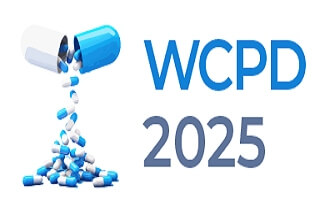2nd World Congress on
Pharmaceutical Chemistry and Drug Development
October 09-10, 2025 | Online
Innovations in Pharmaceutical Regulatory Affairs
Innovations in pharmaceutical regulatory affairs have significantly transformed the landscape of drug development and approval processes. With advancements in technology, particularly in data management and analysis, regulatory agencies are now able to more efficiently evaluate the safety and efficacy of new drugs through real-time monitoring and surveillance. The adoption of artificial intelligence and machine learning algorithms has also enabled automated screening of vast amounts of data, leading to improved decision-making capabilities and quicker responses to potential risks or issues. Furthermore, with the introduction of electronic submission platforms, such as the Electronic Common Technical Document (eCTD), regulatory submissions have become more streamlined and standardized, reducing administrative burdens for both pharmaceutical companies and regulatory authorities. These innovations not only enhance the efficiency and transparency of regulatory processes but also ultimately contribute to ensuring patient safety by facilitating faster access to innovative treatments.
- Regulatory Affairs
- Pharmaceutical Compliance
- Novel Drugs
- Market Introduction
Related Sessions
Tags
- Pharmaceutical Regulatory Affairs
- Regulatory Affairs Conferences 2025
- Innovations in Drug Regulatory Affairs
- Regulatory Affairs Events 2025
- Pharmaceutical Regulatory Symposium
- Innovations in Regulatory Affairs Summit 2025
- Regulatory Affairs Webinar 2025
- Pharmaceutical Regulatory Congress 2025
- Regulatory Affairs Meetings 2025
- Innovations in Drug Regulation
- Pharmaceutical Regulatory Hybrid Event 2025
- Regulatory Affairs in Pharmaceuticals
- Innovations in Drug Regulatory Affairs 2025
- Pharmaceutical Regulatory Event Philadelphia
- Regulatory Affairs 2025 USA
- Innovations in Drug Regulation
- Regulatory Affairs Congress
- Innovations in Drug Regulatory Summit 2025
- Pharmaceutical Regulatory 2025 Events
- Upcoming Regulatory Affairs Events 2025
